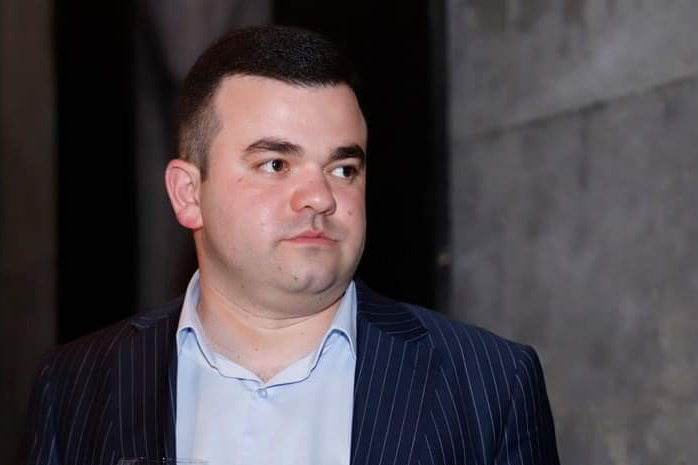The Judicial and Legal Reforms Strategy envisages the elimination of the criminal subculture, as well as the introduction of an alternative punishment system. The strategy also envisages reforms in criminal procedure legislation and improvement of proceedings involving minors and vulnerable persons.
Iravaban.net spoke on the topic with advocate Narek Alaoyan
– One of the directions of the Judicial and Legal Reforms Strategy was the elimination of the criminal subculture, within the framework of which the law on “thieves in law” persons belonging to the criminal subculture came into force on 22 February, 2020. How do you assess the work done in this direction during these 2 years? Are there any legislative gaps in the law?
– Full assessment of legislative gaps becomes possible as a result of actual application of the law. There is a subjective obstacle to make a proper assessment in this regard. Two years have passed since the adoption of the law, which is a sufficient period from the point of view of civil life, but in terms of criminal proceedings it is still not enough to carry out an objective assessment. It is no secret that the pre-trial proceedings in criminal cases, as well as the judicial examination of criminal cases in the Republic of Armenia take place with delays, which in turn has many deep reasons: overload of investigative bodies and courts, etc.
Thus, on the one hand, we have a legislative body, which has expressed its will by the wording of the law that is in force now. On the other hand, we do not have a sufficient number of judicial acts that have entered into force, which would allow assessing whether the current wording of the law serves the purpose set by the legislator.
In such conditions, the opinions on the legislative gap will generally be subjective and will be in the theoretical dimension for a long time.
As a lawyer, I consider the term “criminal subculture” problematic and I think that the use of that term in criminal proceedings can cause many scientific and practical problems.
– What is the prevalence of alternative punishment systems in Armenia? Is there a problem with increasing their types?
– In connection with this question, I consider it necessary to first refer to the goals of the punishment, which are defined in the Criminal Code. According to Article 48, Part 2 of the Criminal Code, the purpose of punishment is to restore social justice, to correct the convicted person, as well as to prevent crimes.
In such conditions, for the proper analysis and application of alternative punishment systems, it is necessary to first clearly define the purpose of the punishment in each case, and then to consider the proportionality of the punishment in terms of achieving that goal.
A number of problems are already emerging from this stage. For example, what is social justice (in a specific case), how is the restoration of social justice determined (by what formula), etc. In order not to give an extreme formalistic wording to what has been said, let me bring a concrete example without pointing out the personal data. A 23-year-old man inadvertently runs over an elderly woman crossing the street in a place not provided by law, as a result of which the victim dies.
The young man fully admits his guilt. Gives a confessional testimony, supports the investigation. Completely compensates the damage caused.
I consider it remarkable that we are talking about a person who has not been convicted before, has a place of permanent residence, a permanent job and is positively characterized by people around him.
In the court of first instance, the legal successor of the victim (the son of the dead woman) states that he has no appeal against the defendant. In such circumstances, the court of first instance sentences the defendant to one year of imprisonment. The Criminal Court of Appeal overturns the judicial act and replaces the sentence imposed in the form of imprisonment with conditional non-application of the sentence, setting a probation period. The mentioned judicial act is not appealed by the legal successor of the victim. The Deputy Prosecutor General appeals against the mentioned judicial act, which is satisfied by the Court of Cassation and the 23-year-old person is imprisoned two weeks before his expected marriage.
In such conditions, it is meaningless to talk about the need to increase the number of alternative punishments, as there is still a strong tendency to give preference to imprisonment in the “upper circles” of criminal justice.
This problem can be solved if certain tools for measuring the implementation of the goals of the punishment are introduced, which are not available yet.
– The draft of the new Criminal Procedure Code of the RA was adopted on 30 June, 2021 and will enter into force on 1 July this year. Plea bargaining and cooperation proceedings have been introduced within this framework. To what extent do you think they are significant in Armenia?
* In cases where the parties to the trial agree on the guilt of the accused, it is not justified to spend resources on a thorough examination of the evidence in certain categories of crimes. In such cases, the court simply has to approve the protocol of the agreement between the parties. This also follows from the logic of full implementation of the principle of competition.
– In order to reach and sign a substantive agreement between the parties, it is necessary for the parties to have the freedom to negotiate an agreement. Negotiations are meaningless if one of the negotiating parties (the accuser) participates in the negotiations without a substantive negotiating mandate, i.e. freedom to make a decision. In such circumstances, I do not consider it reasonable to assume the majority of cases to agree with the position of the prosecutor’s superior, in what circumstances the given legislative change is one step ahead of the law in comparison with the previous expedited procedure, at least at the present stage. For the substantive implementation of the change, it is necessary for prosecutors to be given additional guarantees of freedom of decision in addition to legislative regulations.
– What are the problems related to the proceedings with the participation of minors and vulnerable persons in the courts? The strategy envisages improvement of the proceedings with the participation of the mentioned persons. What are the shortcomings of the legislation in this area?
– In connection with this question, I consider very remarkable the regular recording of a painful problem that has been registered for years and is not solved.
The buildings of a number of courts operating in the Republic of Armenia do not have adequate access for people with disabilities, we are talking about ramps.
It seems to be a simple problem that presupposes an easy solution. In my opinion, this problem is first of all the attitude towards the law. I am more inclined to think that this is more a consequence of negligence than intent. Regardless of the reason, the problem exists and it has not been solved for years. We can endlessly improve the legislation, but if such simple problems do not get their solutions, in terms of substantive solutions, our country, the law enforcement system and the courts will continue to “hang on”.
– What problems do the RA Law Enforcement Bodies have in the field of mutual legal assistance in criminal cases?
– During my working activity I have not encountered such problems yet.


















